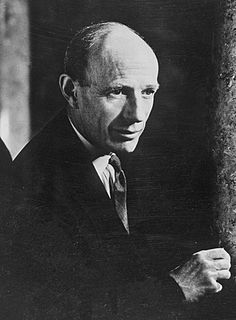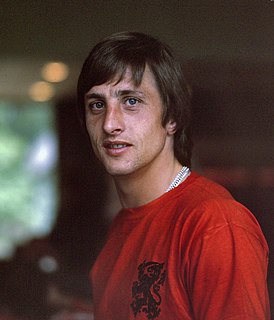A Quote by E. F. L. Wood, 1st Earl of Halifax
A fool hath no dialogue within himself, the first thought carrieth him without the reply of a second.
Related Quotes
The Scripture saith, The fool hath said in his heart, there is no God; it is not said, The fool hath thought in his heart; so as he rather saith it, by rote to himself, as that he would have, than that he can thoroughly believe it, or be persuaded of it....It appeareth in nothing more, that atheism is rather in the lip, than in the heart of man.
If my forward arrives in a one vs one situation, I always say: 'let him work it out.' Then my players say: But we can help him!'. My reply is: First, there's a good chance you'll only run in his way, and as a second attacker you're drawing a second defender with you, and two vs two is harder than one vs one.'
No man can expect to find a friend without faults; nor can he propose himself to be so to another. Without reciprocal mildness and temperance there can be no continuance of friendship. Every man will have something to do for his friend, and something to bear with in him. The sober man only can do the first; and for the latter, patience is requisite. It is better for a man to depend on himself, than to be annoyed with either a madman or a fool.
Breathes there the man, with soul so dead, Who never to himself hath said, This is my own, my native land! Whose heart hath ne'er within him burn'd, As home his footsteps he hath turn'd From wandering on a foreign strand! If such there breathe, go mark him well; For him no Minstrel raptures swell; High though his titles, proud his name, Boundless his wealth as wish can claim; Despite those titles, power, and pelf, The wretch, concentred all in self, Living, shall forfeit fair renown, And, doubly dying, shall go down To the vile dust, from whence he sprung, Unwept, unhonor'd, and unsung.
The first responsibility of the Muslim is as teacher. That is his job, to teach. His first school, his first classroom is within the household. His first student is himself. He masters himself and then he begins to convey the knowledge that he has acquired to the family. The people who are closest to him.
There is an herb named in Latine Convolvulus (i.e. with wind), growing among shrubs and bushes, with carrieth a flower not unlike to this Lilly, save that it yeeldeth no smell nor hath those chives within; for whitenesse they resemble one another very much, as if Nature in making this floure were a learning and trying her skill how to frame the Lilly indeed.
An artist is he who has his center within himself. He who lacks this must choose a particular leader and mediator outside of himself, not forever, however, but only at first. For man cannot exist without a living center, and if he does not have it within himself, he may seek it only in a human being. Only a human being and his center can stimulate and awaken that of another.



































